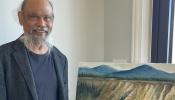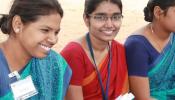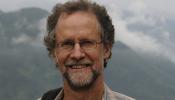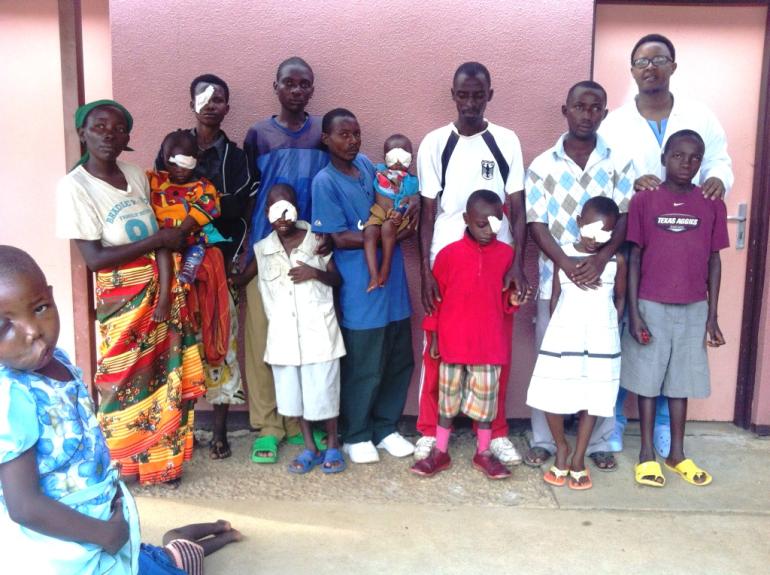
Levi Kandeke with cataract surgical patients
Q. Where did you grow up and what was it like? I was born and raised in Burundi, in a family that from an African perspective was a relatively wealthy family. My parents both had a university education from the USA and Europe which was a rare situation for that time in my country. Thus, I also had the opportunity to go to university in a developed country.
Q. Where do you live now? After my studies in Switzerland I spent some time working in France and am now working in my home country of Burundi.
Q. You trained to be an ophthalmologist in Geneva and worked in France, why did you decide to move back to Burundi? Two factors were vital to my decision, first of all my family insisted that I come home, secondly, an African colleague of mine who worked for the United Nations in Geneva nostalgically told me of the times when he was an ophthalmologist in his native village. His story made a huge impact on me. He told me he had the best time of his life during this period working at home and felt useful to his community. It touched me because it matched my aspirations and this is not what I felt when I was in the West. I decided to return to my country and very soon I realized that I had made the best choice.
Q. You work closely with Seva’s partner in Africa, the Kilimanjaro Centre for Community Ophthalmology (KCCO); can you explain your relationship with them? I started to work with KCCO after having taken a course with them on community eye health. I had very good skills to provide medical eye care for the community; we managed with their help to triple the number of people receiving surgery. With the assistance of Seva, the KCCO team is helping us by looking at our vision centre model to find a way to improve upon it and expand it.
Q. You were the first person to introduce Vision Centres in Africa. Why did you create the Vision Centres and how have they changed eye care in Africa? The introduction of Vision Centres at the beginning was a happy coincidence. Our Minister of Health had the good idea to train mid-level medical eye care personnel but there were no plans to utilize their new skill set. I then decided to do something about it. With my own money I hired ophthalmic clinical officers, found, rented, and refurbished buildings, purchased the necessary equipment and experimented with the idea of having a good quality, private, low-cost vision centre and a sustainable finance model. I can now say it was a success and I hope this eye care model can extend across Africa.
Q. Why is community outreach so important in providing eye care? Community outreach is the surest way to reach the poorest people who are usually the ones who are still suffering from treatable blinding eye diseases and conditions.
Q. What do you see as the biggest obstacle/challenge to making eye care accessible to everyone in Burundi? The most important barrier is often not money but rather accessibility to health care and lack of information. To bring the services closer is a part of the solution.
Q. What has been one of your favourite eye care sight stories? All stories are wonderful; we do not get used to seeing how the blind people are transformed after they recover their vision when they come at day 7 for follow-up. They have a bright face, and their clothes are better washed, they walk straight and safe, and have a communicative smile. If you ask about their future plans they always have one or two projects in the immediate short period. The best story is probably this young diabetic of 18 years who had been told by colleagues that diabetes had rendered her permanently and irreversibly blind. One day, due to depression, she decided not to take her insulin and she fell into a coma. She was hospitalized and during her stay I discovered that her blindness was only due to cataracts. The cataract operation was done as soon as her condition allowed. Currently she is completely transformed, she learned to inject herself with insulin, and decided to return to school despite the three years she missed while she stayed home. I have no doubt that she succeeds brilliantly in class.
Q. What do you do in your spare time? My work takes a lot of my time. When I have spare time I enjoy spending it with my family. My favorite sport is tennis but around my country African football remains the star.
Q. Is there anything interesting or unique about yourself that you would like to share? The chance of my life is to be born and raised in one of the poorest countries in the world and go to graduate school in one of the richest and most developed in the world. It creates for me a shortcut to understand the concepts of wealth and sharing that are often inaccessible to most of us.
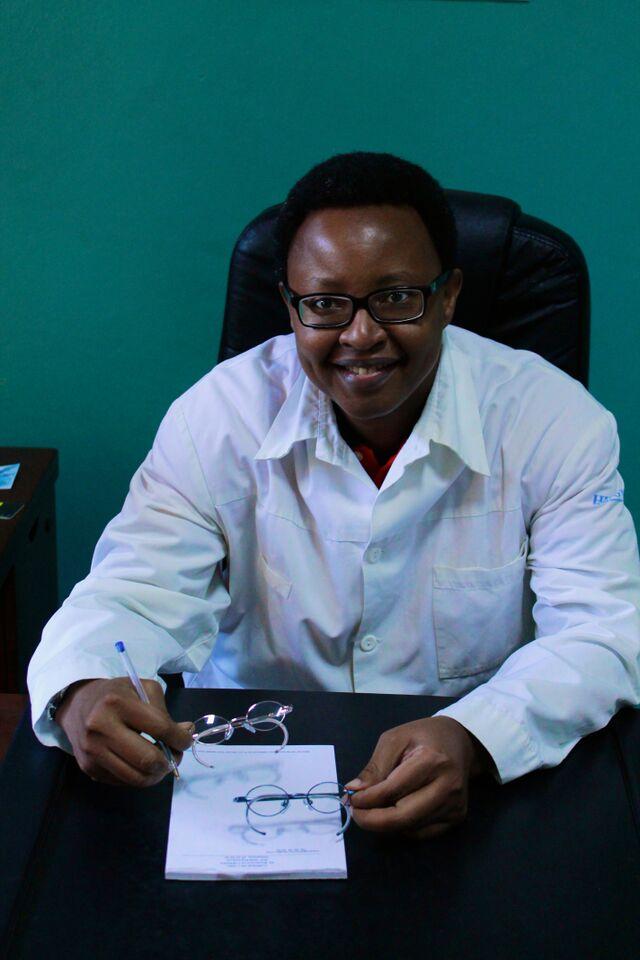
Levi Kandeke.
